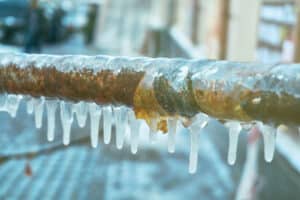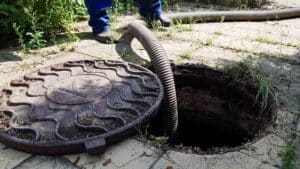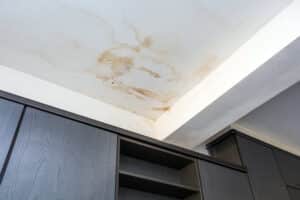
At W.B. Arthur, we know that according to insurance industry research, around 14,000 people in the United States experience some type of water damage emergency each day. That’s a lot of water damage, and the causes range from natural disasters like hurricanes to broken pipes and internal flooding. While there’s not much you can do to prevent a hurricane or tornado from impacting your home, you can take steps to limit the risk of water damage.
Keep reading for some helpful tips so you can prevent water damage in your home.
Good Plumbing is Essential to Preventing Water Damage
Your home’s plumbing is made up of hundreds of feet of pipes spread all throughout your home so that you can have access to water not only in your kitchen but your upstairs bathrooms and laundry room as well. While this is great for convenience, it also means that there are plenty of places in your home where your plumbing could spring a leak without you noticing.
Leaks Are a Common Cause of Water Damage in Homes
Some of the main culprits in plumbing leaks are:
- Old pipes
- Failing water heaters
- Broken washing machine hoses
If your home has a leak from an old pipe that’s as small as just an eighth of an inch, you could be at risk of losing 250 gallons of water every day. This is equivalent to over 90,000 gallons of water every year.
A Sump Pump Works to Ward off Water Under Your Home
A sump pump is a small water pump that is located in the lowest part of your home, which is usually the basement or crawl space. The sump pump’s job is to keep the area under the structure dry and free from flooding. It pumps water away from the building, which often times makes it your home’s last resort in the event of a groundwater leak or a flood.
A Well-Maintained Exterior Keeps Your Home Dry
Keeping the exterior of your home well maintained is incredibly important when it comes to preventing water damage from major storms or natural disasters.
Your Roof Shelters Your Home from the Elements
Your roof is the first point of contact for rain, hail, snow, sleet, and even wind. This is one reason it is imperative that you keep up with your roof maintenance and have it inspected at least once a year and after any major storms.
Cracked, curled or missing shingles can lead to major leaks in your roof. Any water entering through your roof can also ruin your insulation, cause wood rot, damage your walls and ceilings, and become a breeding ground for mold. These leaks can be difficult to spot, especially if they start slowly and don’t cause any major visible damage.
Gutters Wick Water Away from Your Home
The purpose of gutters on your home is to provide a pathway for water so that it doesn’t run straight down your walls. If you allowed the water to constantly drip down your home’s exterior there would be a much greater potential for water to enter your home through cracks.
However, if you don’t clean out your gutters regularly then you will find them clogged with leaves, branches and other types of debris. Clogged gutters will force the water to flow over the gutters, either down the side of your house or over the edge of the gutter.
Additionally, make sure that you have downspouts that face away from your home, so that water is running away from your property and isn’t pooling at the base of the structure.
If your home or business has been affected by water damage, whether it’s from a big storm or a plumbing malfunction, don’t hesitate to contact the experts at W.B. Arthur. Our team is trained in every step of the restoration process from water extraction to damage repair, and we understand the necessity of working quickly to prevent further destruction. We are available for your 24/7 for emergencies!



